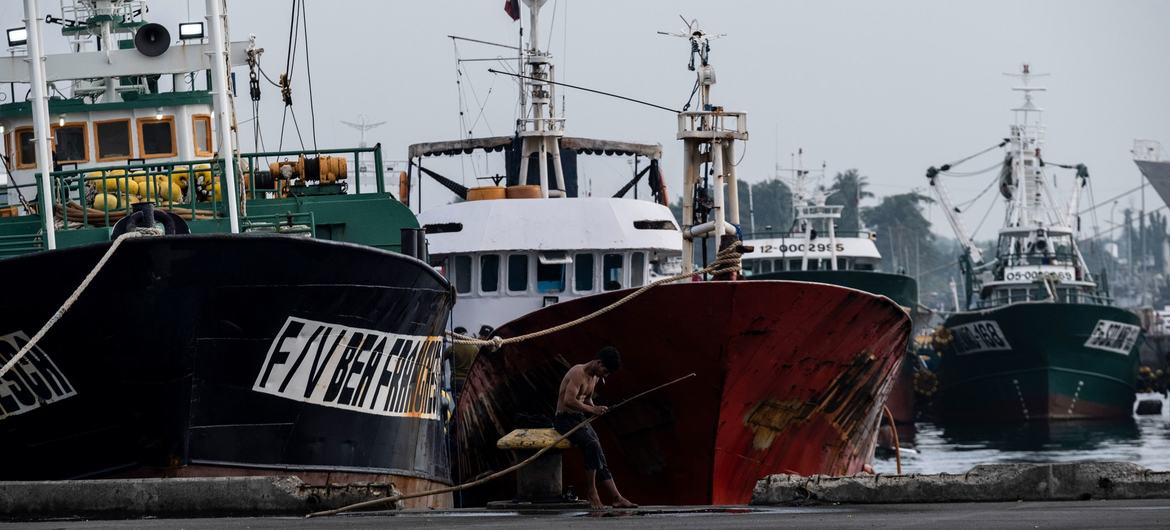
New milestone in battle against illegal, unregulated fishing
© FAO/Veejay Villafranca. Fishing boats docked in General Santos City Port Complex in the Philippines.
United Nations, 07 November 2022
Global action to fight illegal, unreported, and unregulated (IUU) fishing has intensified, the Food and Agriculture Organization said on Monday, noting that 100 States have now signed on to an international agreement battling the scourge.
The Agreement on Port State Measures (PSMA) is the first internationally binding instrument specifically designed to prevent, deter, and eliminate IUU fishing by denying port access to foreign vessels that engage in or support such practices.
“Rising consumer demand and transforming agrifood systems in fisheries and aquaculture have driven global fish production to its highest levels and there is broad recognition of the need to step up the fight against IUU fishing”, said QU Dongyu, FAO Director-General.
One in five, illegal
One in every five fish caught around the world each year is estimated to originate from IUU fishing.
This not only triggers devastating impacts on the sustainability of fisheries and the livelihoods of those who depend on them but also on the conservation of marine ecosystems.
IUU fishing undermines national, regional, and global efforts to achieve sustainable fisheries and its elimination is key to succeeding in reaching the UN’s Sustainable Development Goals (SDGs).
The right move
However, with Angola, Eritrea, Morocco, and Nigeria being the latest countries to back the agreement, 60 per cent of port States globally are now committed to the agreement to combat IUU fishing.
“It is encouraging to see more States support the PSMA in support of the Sustainable Development Goals”, said the top FAO official.
‘Transforming aquatic food systems’
Manuel Barange, director of FAO’s Fisheries and Aquaculture Division, upheld that “we have a responsibility to manage and use all aquatic resources sustainably”.
He maintained the need to work together to step up port controls and an adequate information exchange through implementing the PSMA.
“This will contribute to transforming aquatic food systems and maximize their role as drivers of employment, economic growth, social development and environmental sustainability.”
Working the system
FAO recently launched the PSMA Global Information Exchange System (GIES), which collects and shares official compliance-related information with a focus on port inspection results, actions taken and port entry or denials.
Along with the FAO Global Record of Fishing Vessels, Refrigerated Transport Vessels and Supply Vessels, the platform supports PSMA nations, and complementary instruments aim to combat IUU fishing.
So far, FAO has assisted more than 50 countries in reviewing their legislation; strengthening their institutional capacity; and improving their monitoring, control and surveillance systems and operations, to effectively implement the agreement, and fulfil their international responsibilities.
The original article appeared here.